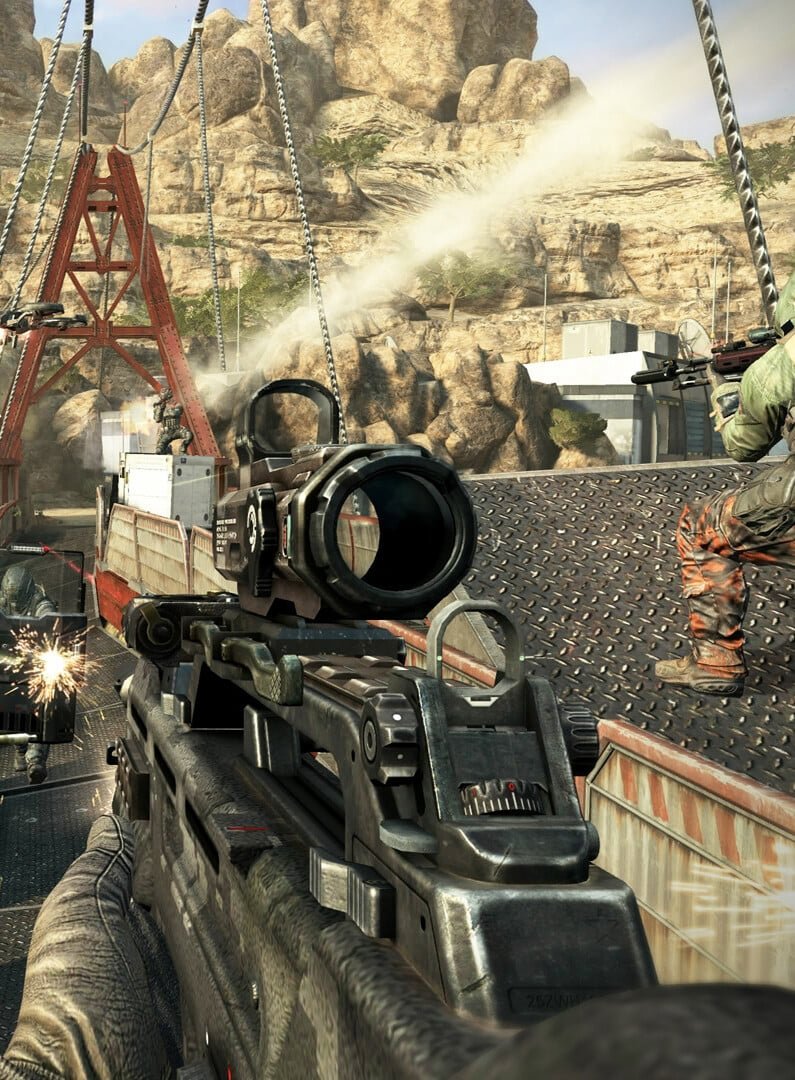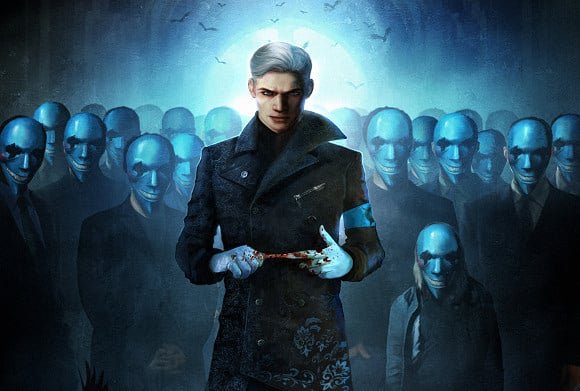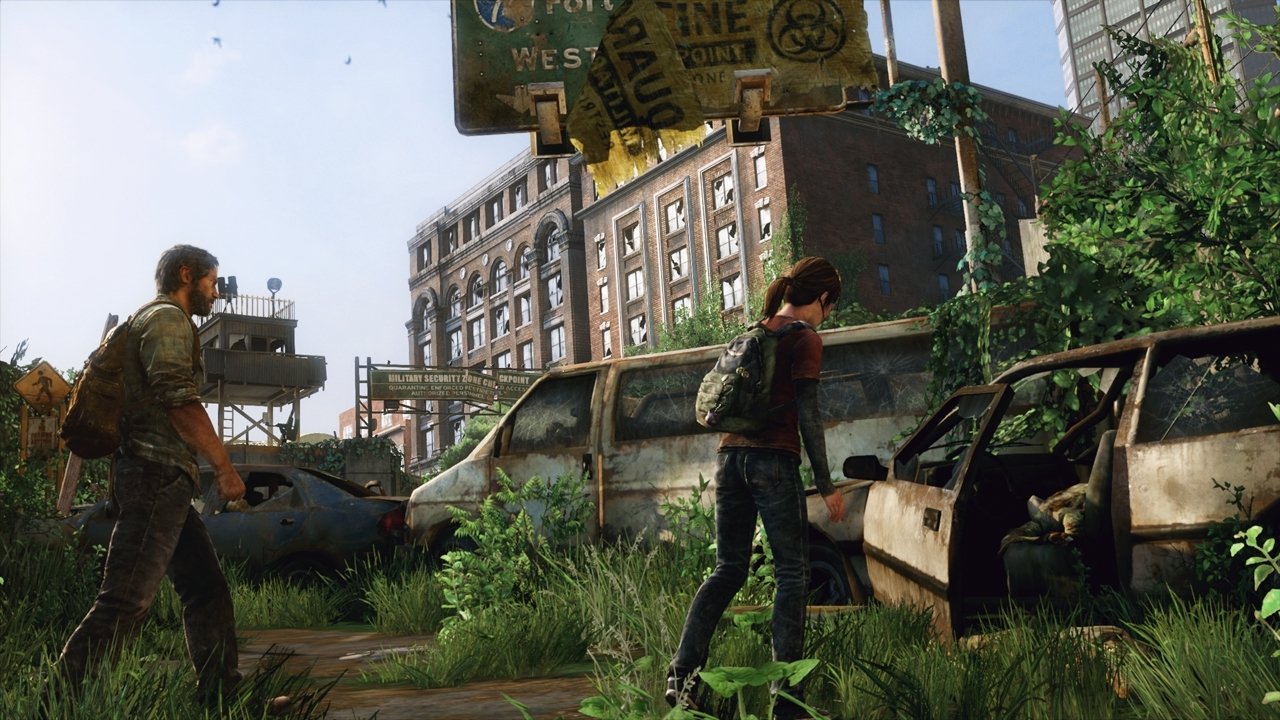After sitting down and playing the new Devil May Cry game, it confirmed something that I’ve been suspecting for years.
Games, like film and literature can be cultural artifacts, time capsules, reflecting the worries and sensibilities of the time. In the same way that American Graffiti represented the 50s, and Saturday Night Fever chronicled a slice of life in New York in the 70s, DMC: Devil May Cry takes all the anxieties of the teens of the 21
century and puts them in a context where players can beat them up.
Devil May Cry takes all the anxieties of the teens of the 21st century and puts them in a context where players can beat them up. Mundus has now been transformed from a demon sitting around on some far away island to a financial mogul who controls entire governments through increasing levels of debt. He has a vast armada of other tools at his disposal, such as “Virility” a soft drink that stupefies the consumer, and his own ultra conservative news agency called “Raptor News Network” with a Bill O’Reilly style broadcast journalist that signs off every broadcast with the trademark phrase “Just doin’ God’s work.” Even more control is exerted through an extensive network of closed circuit cameras that watch and document everything, a commentary on Ninja Theory’s home country of the United Kingdom and the CC Camera network of London that has caused hoodies to become a new fashion in order to protect privacy. Even the rebels make pirate transmissions trying to inform people about the conspiracy while wearing masks similar to the Guy Fawkes mask of V for Vendetta which was then adopted by “hacktivist” group Anonymous.
 In a very simple way, DMC covers all the trendy, timely concerns of the decade, but then says that it’s all the fault of demons enslaving humanity. Then it gives players the cathartic release of putting an end to the shenanigans themselves. And it’s not the only game that does this. This seems to be a popular trend in games, as in blockbuster films, making the anxieties of the day something that can be defeated. Call of Duty is another title that often rips headlines straight from the papers and makes them part of its plot. With the latest title, Call of Duty: Black Ops II, players engage in drone combat, take on Nicaraguan overlords, and learn all about how China’s stranglehold on rare earth elements is going to make trouble in the future for America thanks the military’s increasing dependence on such materials for their military electronics and hardware.
In a very simple way, DMC covers all the trendy, timely concerns of the decade, but then says that it’s all the fault of demons enslaving humanity. Then it gives players the cathartic release of putting an end to the shenanigans themselves. And it’s not the only game that does this. This seems to be a popular trend in games, as in blockbuster films, making the anxieties of the day something that can be defeated. Call of Duty is another title that often rips headlines straight from the papers and makes them part of its plot. With the latest title, Call of Duty: Black Ops II, players engage in drone combat, take on Nicaraguan overlords, and learn all about how China’s stranglehold on rare earth elements is going to make trouble in the future for America thanks the military’s increasing dependence on such materials for their military electronics and hardware.
I think there are several factors at play that have put games in this same position as other more traditional media. One is obviously the maturation of the both the industry, and its audience. Back in the 80s when games were viewed as entertainment for children, there was no point in bringing current events and social anxiety into games because the audience wasn’t interested. Now many gamers are in their 20s or even 30s and 40s, and so are the developers themselves, meaning that they are more willing to explore more mature, socially relevant subject matter. Another factor is the increase in production values. Gone are the days of simple text and dialog boxes in AAA titles. Games like DMC have a full on crew of cinematic editors and directors to craft the cut scenes and stylize the news logos and reporting style for authenticity and/or parody.

This is a trend likely to continue on in the future. David Cage has an interesting track record of playing with adult concerns, though most of his themes are more universal than timely, and Naughty Dog’s The Last of Us plays “what if” with the cordyceps virus a disease that was brought to greater public attention thanks to the BBC and their Planet Earth series. Like novelists and film makers, game developers will need to start digging deep into other wells if they want to avoid the stereotypical “save the princess” plotline that has been a staple gaming for the last 30 years. Borrowing from modern social concerns is one way to do that.




